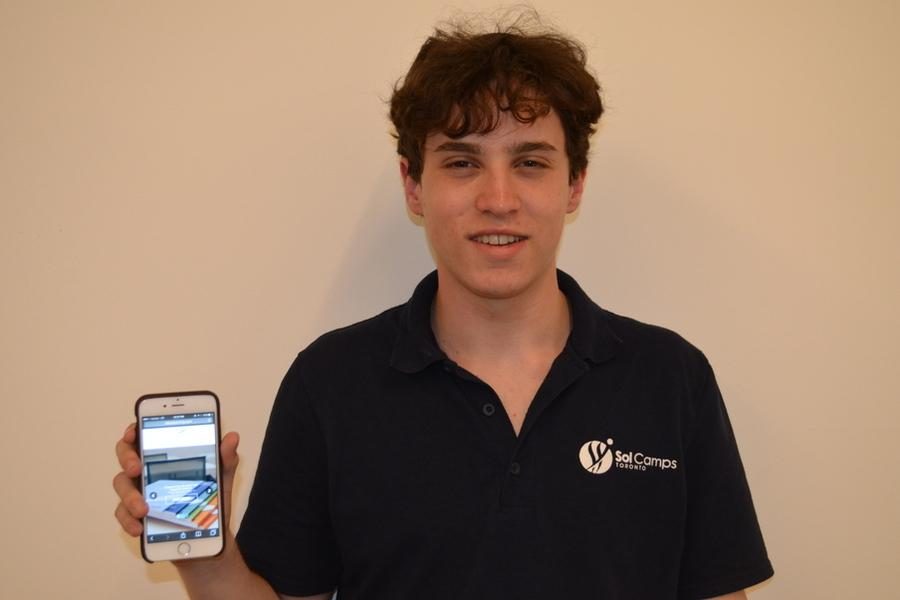Student’s fix to Jastrow goes viral
Popular Talmud dictionary can now be searched on PDF thanks to Noah Mermelstein’s app
October 15, 2016
For Talmud students everywhere, gone are the days of spending distracting minutes of learning trying to locate a difficult Aramaic word and its translation in the Jastrow Online Dictionary.
Last year, current junior Noah Mermelstein created a new version of the website, which is called jastrow.tk. The website has a word search and it already has over 2,500 users and 6,000 views.
He started it as a fun project to practice his computer engineering knowledge.
“I didn’t do anything so sophisticated,” Noah said. “It was just an interesting engineering problem. I was shocked that no one had done it before.”
Before Noah’s website, Shalhevet students used the older Jastrow website, with the rather clunky URL tyndalearchive.com/tabs/jastrow. It is arranged alphabetically with first word indexes, but it does not have a search engine for finding individual words quickly.
Noah noticed this problem and knew how to fix it. Watching Youtube videos from Code Academy and other websites, he has been teaching himself computer engineering since middle school.
“Nowadays you can teach yourself anything because there are so many resources,” Noah said.
Since the copyright for the original Jastrow website is expired, he was able to download the PDF files of all of the pages and collectively convert them to images in order to write his code.
He performed dozens of tests to find the smallest file size for the pages that would still make the words readable, so that the loading would go faster.
He then created an algorithm that allows website users to search a word and have the page with that word come up as they type in letters.
Since then, people inside and outside of Shalhevet have been happy to use it. Sophomore Leor Kaminski, who transferred here this year, already had it last year when he was at Milken Community High School.
“My rabbi told our Gemara class about it,” Leor said in an interview. “It was super helpful.”
Apart from the website’s success, another thing Noah did not expect was that this development would lead to a month-long summer internship with LaHav – Shalhevet’s original Talmud curriciulum created by Principal Reb Noam Weissman and Judaic Studies teacher Rabbi David Stein.
Rabbi Stein asked Noah to incorporate his programming into the Lahav app, which contains all of the curriculum’s sources and allows teachers to share and collaborate on teacher guides and lesson plans.
In his month-long internship, during which he worked two to three times a week, Noah helped automate some of the components of the app, such as word recognition in PDF files.
The Lahav app developers hope the app will be accessible to students, so that they can annotate and translate individual pages of Talmud on an iPad, phone, or computer.
Rabbi Stein said the app is still undergoing development, but so far he has received positive feedback from teachers who use it.
“It definitely is a culture change,” said Rabbi Stein. “Teachers are kind of used to working on their own, and this allows teachers to try to collaborate a little more.”














Ariella Mermelstein • Nov 2, 2016 at 10:44 am
Way to go, Noah! I am so impressed with how far your skills and talents have taken you. I always know I can count on your for help with understanding concepts that I am currently learning in my college computer science courses.
Proudly your cousin,
Ariella Mermelstein